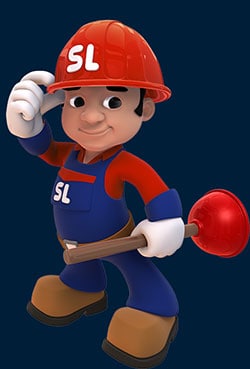Blocked toilets are a common plumbing problem that can cause inconvenience, embarrassment, and even damage to your home. While flushing things down the toilet may seem like an easy solution to get rid of waste, it is important to remember that not all items are suitable for flushing. In this article, we will discuss the items that you should never flush down the loo to prevent blocked toilets.
The Top Offenders
- Baby Wipes: Baby wipes are a common culprit when it comes to blocked toilets. Although they are marketed as “flushable,” they can take a long time to break down and can cause blockages in your pipes. Instead, dispose of them in the bin.
- Feminine Hygiene Products: Tampons, pads, and panty liners should never be flushed down the toilet as they can cause blockages and damage to your plumbing system. Always wrap them in toilet paper and dispose of them in the bin.
- Paper Towels and Tissues: Although they are made of paper, paper towels and tissues are designed to be absorbent and do not break down as easily as toilet paper. Flushing them down the toilet can cause blockages in your pipes.
- Cotton Balls and Swabs: Cotton balls and swabs may seem small, but they can cause big problems when flushed down the toilet. They do not break down easily and can get caught in the bends of your pipes, causing blockages.
- Condoms: Condoms are not biodegradable and can cause serious blockages in your pipes. Always dispose of them in the bin.
- Medications: Flushing medications down the toilet can have a harmful impact on the environment. Instead, dispose of them in the bin or take them to a pharmacy for safe disposal.
How to Prevent Blocked Toilets
The best way to prevent blocked toilets is to be mindful of what you flush down the loo. Stick to flushing only toilet paper and bodily waste. It is also important to note that even if an item is marketed as “flushable,” it may not be suitable for flushing. Always dispose of items like wipes, pads, and tampons in the bin.
If you have young children or guests staying in your home, it is important to educate them on what can and cannot be flushed down the toilet. Consider installing a small bin in your bathroom for disposal of items like baby wipes and hygiene products.
Regular maintenance of your plumbing system can also help prevent blocked toilets. Have a professional plumber conduct routine checks and cleanings of your pipes to ensure that they are free from blockages.
What to Do if Your Toilet is Blocked
If your toilet is already blocked, it is important to avoid using any chemicals or tools that could cause further damage to your pipes. Instead, contact a professional plumber to assess and fix the issue.
A plumber may use tools like a plunger or a drain snake to clear the blockage. If the blockage is severe, they may need to use more advanced techniques like hydro jetting or pipe relining [1].
Conclusion
Blocked toilets are a common plumbing issue that can cause inconvenience and damage to your home. By being mindful of what you flush down the toilet, you can prevent these blockages from occurring. Stick to flushing only toilet paper and bodily waste, and always dispose of other items in the bin. Regular maintenance of your plumbing system can also help prevent blocked toilets, but if you do experience a blockage, contact a professional plumber for assistance.
[1] https://streamlinepipes.com.au/pipe-line/pipe-relining/
- Why Brawoliner is the Best in Pipe Relining Business - August 4, 2025
- Aftercare of Pipe Relining: How Hard is it Really? - August 4, 2025
- Revitalizing Your Sewer Pipes: How Sewer Pipe Relining Works - August 4, 2025





